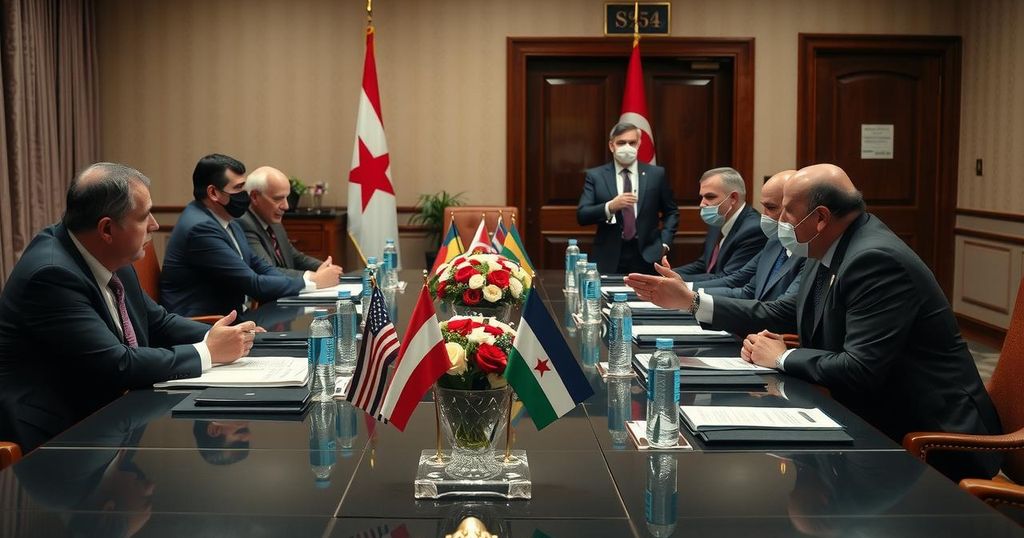Officials from the US, Turkey, and Arab nations have pledged support for a peaceful transition in Syria during talks in Jordan. They aim for an inclusive government while preventing chaos similar to Libya’s experience. US Secretary of State Blinken confirmed engagement with the rebel group HTS amid skepticism regarding its intentions. The absence of Syrian representatives and external supporters Iran and Russia poses challenges for future governance.
In a recent conference held in Aqaba, Jordan, officials from the United States, Turkey, and several Arab nations expressed their commitment to supporting a peaceful transition in Syria. Jordanian Foreign Minister Ayman Safadi emphasized the collective desire of regional powers to prevent the country from descending into chaos. US Secretary of State Antony Blinken confirmed that direct communications had been established with the rebel group Hayat Tahrir al-Sham (HTS), which had played a significant role in the recent upheaval against President Bashar al-Assad.
A joint statement from the talks called for the establishment of an inclusive Syrian government that respects minority rights and disallows the presence of any terrorist factions. Iraqi Foreign Minister Fuad Hussein highlighted the importance of stability in Syria, voicing concerns regarding the potential for chaos reminiscent of Libya’s situation post-Gaddafi. Turkish Foreign Minister Hakan Fidan stressed the need to reform existing Syrian institutions while ensuring that terrorist groups do not exploit the transition.
Although HTS has communicated intentions for inclusion in governance, skepticism remains due to its violent past. US officials reiterated that discussions with HTS would continue, particularly concerning the fate of missing American journalist Austin Tice. Notably absent from these crucial discussions were representatives from the Syrian government, as well as the supportive powers of Iran and Russia, casting a long shadow over future political developments in Syria. The success of any emerging political entities hinges on achieving not only internal cohesion but also external support to foster a sustainable and unified Syria moving forward.
The conflict in Syria has persisted for over a decade, stemming from a complex interplay of local grievances and international interests. The removal of Assad seemed imminent before his regime regained strength with backing from Russia and Iran. Recent discussions in Jordan underscore a renewed urgency among regional and global powers to support a peaceful transition and avoid the fragmentation that could result in a scenario akin to Libya’s post-revolution chaos. The involvement of HTS introduces both hope for inclusivity and concerns over its commitment to democratic governance.
The meeting in Jordan marks a significant step towards promoting a peaceful resolution in Syria amid ongoing turmoil. The emphasis on an inclusive government and the prevention of chaos indicates a critical effort by regional and global powers to stabilize the situation. However, the absence of Syrian representation and the historical context of violence and political instability underscore the complexities that lie ahead in realizing a unified and representative governance in Syria.
Original Source: www.bbc.co.uk






